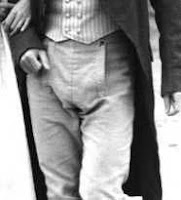My cousin Edward seems to have been sent out to manage the family business in Australia Bristol
The little I know of him comes from one long letter he wrote to his uncle, my 3x great uncle Charles Castle, on 18th March 1847. It’s a beautifully written, vivid account of his life in South Australia
Rev RW Newland (1790-1864) The Pioneer Pastor
Framed by news of business ventures, the central passage of the letter describes a 100-mile trip on horseback which he made from Adelaide Encounter Bay Bristol Kingston South Australia
“I have visited Encounter Bay, traversing nearly 100 miles on horseback at an expense of 3s/2d, on my way thither passing the fertile district of Maclaren Vale, the rising towns of Noarlunga and Willunga, crossing the Mount Terrible range of mountains, a vast sea of scrub and thirsty swamp and [breaking the journey] at Hungry Swamp. The morass which bears such an unhappy appellation is now adorned by the villa (or villa-nous) residence of an elderly couple of ascetics who derive an ample subsistence by the retailing of Tea and Lamper, the manufacture of besoms from a plant which grows in large quantities in scrubby land, and the cultivation of a small garden, which yields very fine potatoes and which after a long ride are doubly welcome for
‘Who’d go through the scrub
Without any grub?’
cooked in a wine and blood sauce
in stove-top casseroles and served with rice
“At 15 miles distance, at a sudden turn in the almost overgrown way, the view of the noble bay burst upon me, the waters of which, generally so troubled, were then still “as an infant asleep”. After fording the mouths of the Hindmarsh and Inman Rivers, two miles of sand were to be passed ere Rozinante and self could reach the residence of the Rev’d R.W. Newland, our quondam fellow passenger of the “Kingston”, to whose paddock the former and whose house the latter were paying a visit when, lo! breath it not in Gath
“Fortunately however the mists of night were beginning to shroud the neighbouring hills and by the time of my arrival small objects … were not visible to the naked eye. Having effected a hasty retreat to a private room and as hasty a transformation into younger birds of the same species, … I joined the party with more confidence than at first, and was shortly after occupied in doing my devours (devoirs) on divers slices of ham &c.”
and (right) as worn in the BBC ’s production of Sense and Sensibility
(the book was first published in 1811) - small objects not shown
Newland lived on The Bluff, the view from which Edward described so eloquently later in his letter (see my earlier post). I think the “lamper” served by the ascetic couple were lamprey eels. “Inexpressibles”, like “unmentionables”, was a nineteenth century euphemism for trousers, from a time when polite society thought it improper to refer to anything at all below the waist. Poor Edward’s white buckskin riding breeches had become see-through from sweat in the course of his ride, revealing in some detail any small objects contained within them.










Fascinating family history!
ReplyDeleteI gave you one of my weekly awards which you can collect anytime if you like!
Congratulations for the POTW. This is really interesting. I really like the white buckskin inexpressibles. That must have been quite a journey on horseback.
ReplyDeleteWow. Inexpressibles. Fascinating journey through your cousin's eyes. Well done.
ReplyDeleteFunny! I thought inexpressibles were underwear, until you kindly explained the situation.
ReplyDeleteI've worn out a few pairs of riding britches, so I can sympathize. Lucky for the dark of night to hide the "small objects"!
came over from the goddess and the POTW awards. congratulations for a well done piece of writing, sugar! xoxo
ReplyDeleteHi all,thanks for all the comments and, Goddess, thanks for the Award! Sorry for taking so long to acknowledge - I'm not here at the moment! (Vive la France ... ) but will get in touch on my return.
ReplyDelete